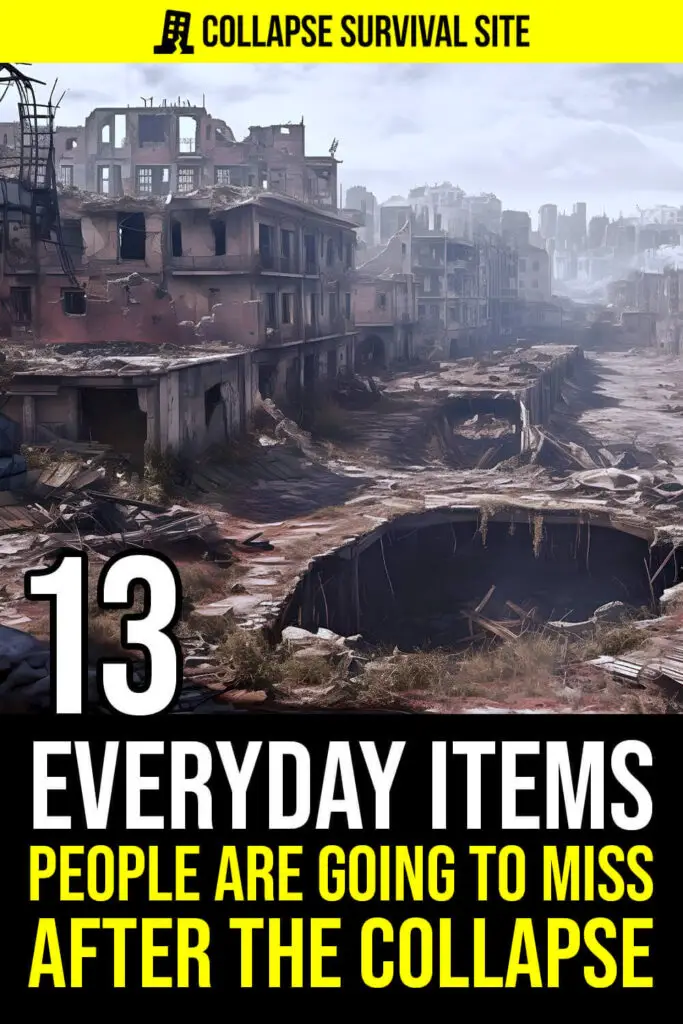Estimated reading time: 8 minutes
Our daily lives are made much easier thanks to the magic of modern convenience. Much like the phrase “there’s an app for that”, there is a product for every need we may have. Consumerism has led to companies creating massive amounts of these products so it seems as if you can find them just about anywhere, creating a reliance among the population..
But what happens when those items cannot be manufactured anymore due to a lack of resources available or even worse, economic mismanagement? A good example can be found in South Africa right now as their state power utilities can barely power anything. Costs of electricity are going higher as the instability of the grid increases.
Want to save this post for later? Click Here to Pin It On Pinterest!
South Africa’s infrastructure is failing all the while putting the country into debt. This will end up causing taxpayers more in the end, putting additional strain on the economy.
The main point is that without economic reform it will potentially lead to a complete collapse of the government and economy. There are already signs all around considering goods and services are limited and people struggle to get basic supplies.
Depending on your lifestyle you may be more or less reliant on these everyday items that people most likely won’t have access to after the collapse. Luckily, a lot of these items can be substituted with a little ingenuity and effort.
1. Lighters
Today, you’ll find lighters almost everywhere. They can be found in pockets and glove compartments all over the world. There is an entire industry that is devoted to creating lighters. For most, lighters are a quick fix for a consistent flame to start a fire, light a cooking stove, or spark up a cigarette post-collapse.
Without lighters, these tasks become quite a bit more difficult. However, getting items such as readily available standard and waterproof matches or investing in a Ferrocerium rod that can throw hot sparks is a good alternative.
2. Flashlights
Found in almost every household on the planet, flashlights are useful in all kinds of situations. If the power grid went offline then flashlights would be your primary source of light. In a bug-out situation, flashlights would protect against predators lurking in the night.
However, LED flashlights will only give you around 10,000 hours of light before burning out. It’s at this point that they become useless since they won’t be in production anymore.
Candles are an excellent replacement that you can make yourself. If you have access to beeswax then you can make them pretty easily. Otherwise, pure lard or even a wax crayon can be used to create some lighting in a pinch.
3. Batteries
You’d be hard-pressed to find essential items that didn’t run off of batteries. Things like flashlights and communications equipment will be rendered useless without them. Unfortunately, there isn’t much you can do once the rechargeable batteries are at the end of their lifecycle
Your best option for the short term is to invest in some radios and flashlights that are hand-cranked while stockpiling a healthy supply of batteries.
4. Soap Bars and Shampoo
After the collapse, you won’t have the luxury of going to the doctor every time you get sick. Instead, keeping up good personal hygiene is the first line of defense in maintaining good health and fighting off disease. Unfortunately, you’re not going to be able to go down to the store and pick up some soap.
Instead, consider stocking up on baking soda and making your own apple cider vinegar since it can be used for cleaning your body and hair. Another sustainable method of making soap would be to craft your wood ash soap.
5. Toothbrushes and Toothpaste
Studies have shown that good tooth health is related to your overall body health. Keeping your teeth clean post-collapse may be a forgotten thought, but without brushes and toothpaste, it becomes difficult to clean them.
You can use a finger to brush your teeth but that may be ineffective if they are really dirty. A warm water and salt combination can be swished around in your mouth to loosen up any stuff that’s stuck on your teeth.
Abrasive vegetables such as carrots and celery can be abrasive enough to help clean them. Toothpaste can be created by dissolving a small amount of baking soda into some warm water into a thin paste.
6. Toilet Paper
Toilet paper has uses beyond the bathroom and can be pretty handy post-collapse. It can be used to help stop bleeding from wounds and as facial tissue. The leftover rolls make a great firestarter for cold nights when you don’t have any tinder around you.
You can substitute toilet paper for large green leaves, like those found on an American Beech or any other tree. These moist leaves will make cleaning up after yourself easier. Make sure you properly identify the tree to not get a rash from it.
If you’re in a forest, look for damp moss as an alternative. In the wintertime, hard-packed snow is abrasive enough to get the job done.
7. Painkillers
Injuries, chronic pain, and other physical ailments are generally treated with painkillers. In the most dire of situations, they can keep a person from going insane due to pain. Having a stock of different pain meds such as ibuprofen, acetaminophen as well as others is always a good idea.
There are plenty of medicinal plants around that you can take advantage of. For example, English plantain or lance plantain are commonly considered weeds, however, you can chew up the leaves and put them on a cut, scrape, or burn for a painkilling poultice. Cattails also have a jelly between the leaves close to the base of the stalk that has antiseptic and analgesic qualities.
8. Duct Tape
Whether constructing a shelter for the night or conducting minor repairs on your vehicle, duct tape can be used in many situations post-collapse. It is durable, water-resistant (some brands are waterproof), and sticks to almost anything.
The best substitute that you may be able to readily scavenge would be rope or paracord. With the proper knots and lashing techniques, you can tie just about anything together.
9. Insect Repellent
Depending on the season, bugs can be a huge problem. Mosquitos, black flies, and others can leave painful welts and sores all over your body. If you’re bugging out without insect repellant then you had better be wearing long-sleeved shirts and pants to protect your exposed areas.
Something as simple as a smoky fire can be a deterrent for biting insects. Using a mesh bug net is another alternative that can protect you from bugs in the long term.
10. Nails and Screws
Everything constructed in our cities and towns was done using nails and screws. Without them, we are reduced to primitive methods in which we can construct shelters. If you are bugging in post-collapse, boarding up your windows and doors is a crucial step in securing your home.
An alternative would be to create some mortar or cement, something that will help bind the materials together. Creating your own pine pitch, or glue is another way to fuse things.
11. Fishing Line
Gathering food post-collapse should be a priority, especially when your supplies start to dwindle. Fishing is one of the best ways to get a source of protein and healthy fats into your diet. However, without a fishing line, it becomes tricky to catch anything.
This is because fish are generally scared by movement and the fishing line is so thin that they often don’t notice it in the water. Use anything else and you might scare off your potential catch.
It is possible to create your fishing line in a few ways. Thin shoelaces can be fashioned into a makeshift line. Other people will cut open paracord and use the thin strands inside to fashion some line.
12. Aluminum Foil
Tin foil has so many uses currently that it is probably not surprising to learn that it will be very handy post-collapse. Using tin foil and a battery you could create a spark that will help you start a fire.
Blown fuses will stop your electronics from functioning and if you’re out of fuses you can fashion a permanent bridge using tin foil (not recommended to do as it can be a fire and shock risk). It can also help you cook food over a fire if you don’t have a pan. Simply fill a foil pouch with food, seal it, and throw it into the fire.
For cooking, consider creating a clay oven or using cast iron cookware to help mimic the oven-like capabilities that tin foil has to offer.
13. Zip Ties
A zip tie is a handy item that ties things together and doesn’t come undone. They are strong and made from durable plastic. You can even find metal varieties that are meant to be used in high-heat situations.
As long as someone doesn’t have a cutting tool, they’d be hard-pressed to break through one of them. This makes them effective for locking items up, holding together falling car parts, and restraining someone.
As an alternative, copper wire is a durable material that can be used to tie things together. Ratchet straps are reusable and have the strength to hold something for extended periods.
Don’t Forget to Stock Up
Without these everyday items, living post-collapse can become quite difficult. Being innovative and creating your replacements takes time and practice. Learn those skills before it becomes too late. A decent beginning strategy is to stock up on these everyday items so that you have a decent supply ready to use when you need it.
Like this post? Don't Forget to Pin It On Pinterest!








